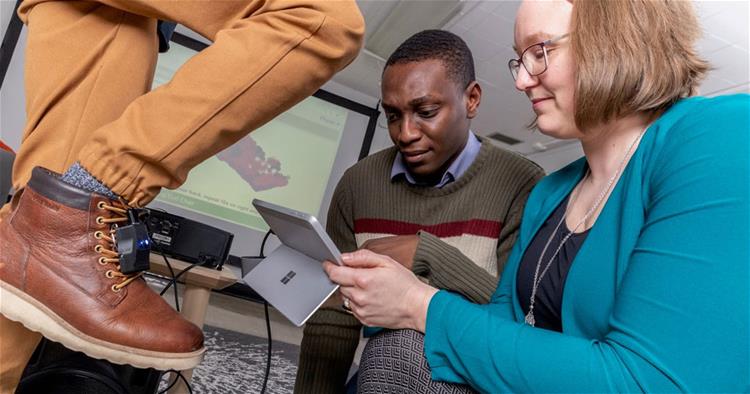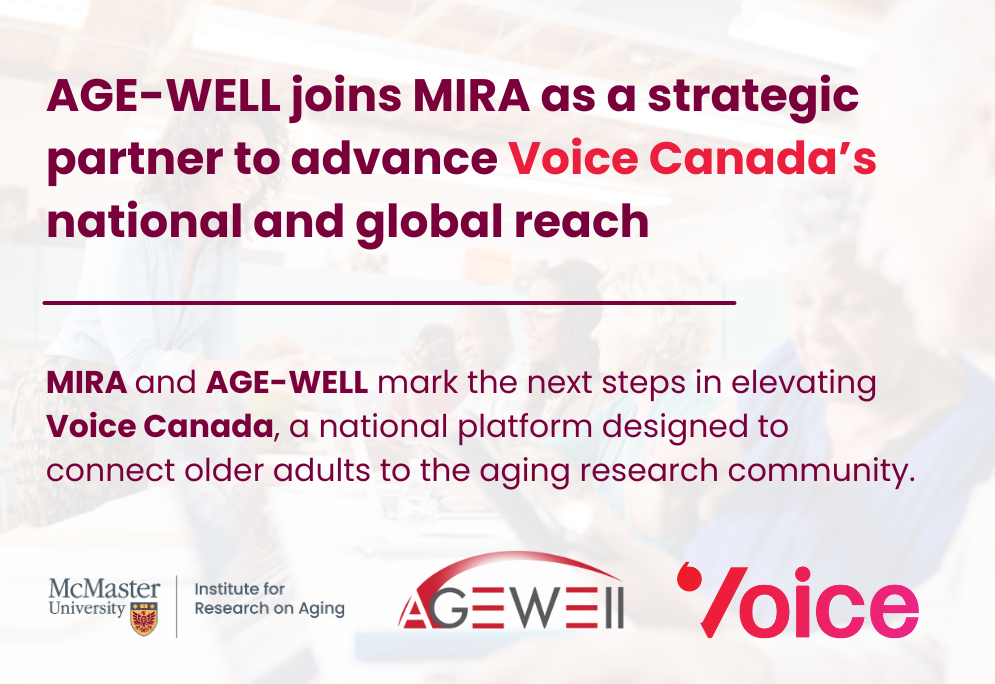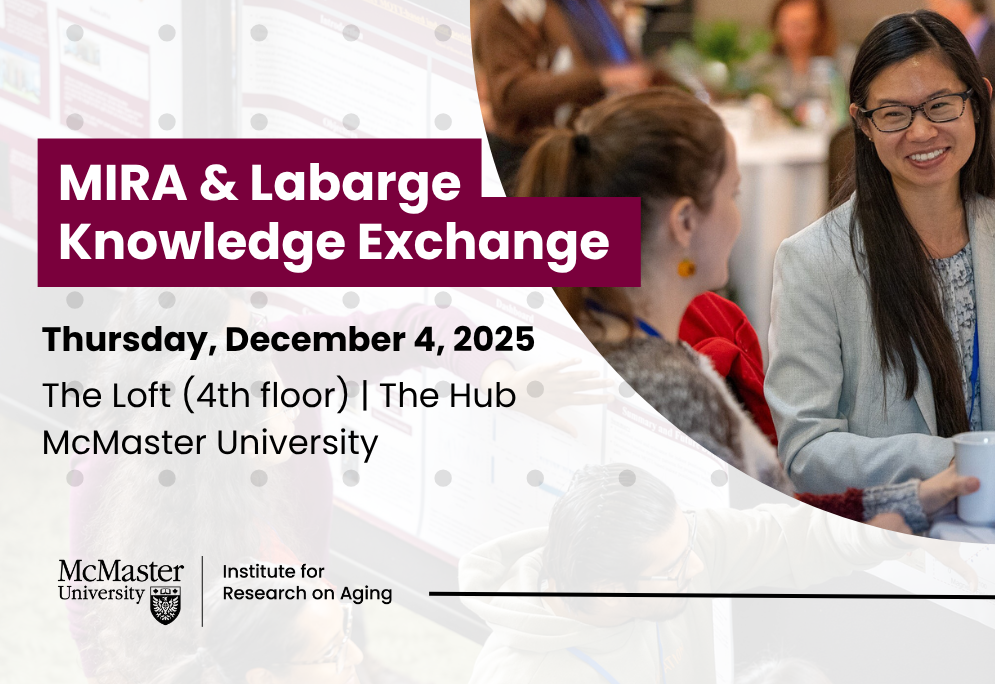
Published: September 20, 2019 | By Sara Laux, Kara Aaserud and Janet Bell
MAC the Magazine features MIRA’s interdisciplinary #ABLE project focused on encouraging longevity in older adults with movement, music and art.
THE CHALLENGE
Mobility and social isolation: two challenges that face many older adults, both of which can have profound effects on health. Improving mobility can mean the difference between maintaining a level of independence and succumbing to disability, while reducing social isolation can result in improved physical and mental health.
THE EXPERTS
Paula Gardner, associate professor in the department of Communication Studies and Multimedia, Rong Zheng, computer and software engineering professor, Alexandra Papaioannou, director of the GERAS Centre, and Caitlin McArthur, a postdoctoral fellow and physiotherapist. They’re joined by an interdisciplinary team of researchers and support staff from different faculties including Humanities, Engineering, Science and Health Sciences, and works in partnership with the McMaster Institute for Research in Aging (MIRA), its Labarge Centre for Mobility in Aging,and the GERAS Centre.
THE GOAL
To create an arts-based digital interface that engages older adults in either rehabilitation exercises or free-flowing dance movements, and encourages multi-generational bonding – one that has a low barrier to entry, is easy to learn, is inexpensive and easy to set up.
THE SOLUTIONS
The ABLE project (Arts-Based Therapies Enabling Longevity for Geriatric Outpatients), an arts-based rehabilitation platform designed in McMaster’s Pulse Lab. Participants complete physiotherapist-prescribed exercises while wearing shoe-mounted sensors that communicate with a custom-designed app, which then creates a digital painting or music composition based on the user’s movement.
The app is unique in that, unlike other more familiar digital movement platforms like the Wii, ABLE’s platform isn’t focused on the complex movements of sports – meaning that if someone has never played sports, or has a cognitive impairment that makes complex movements difficult, the platform is still effective.
THE QUOTE
“I grew up with a lot of respect for older adults. I had the pleasure of interacting with many grandmothers, great aunts and my great grandmother,” says Gardner, who is also the Asper Research Chair in Communications. “There is a deep pleasure one can get when engaging closely with your family members, including the older adults who are often marginalized or infantalized. The older adults in my family were the centre and the anchors.”
Read the ​​original article here.

